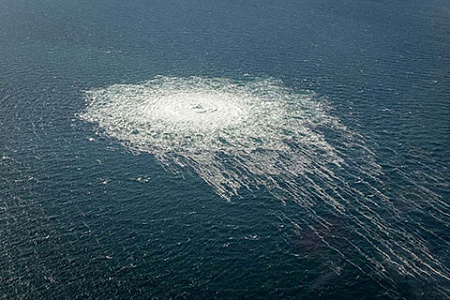
Russia is set to convene a UN Security Council meeting this Tuesday to address what it calls new circumstances surrounding the September 2022 sabotage of the Nord Stream gas pipelines. This move follows reports of a significant breakthrough in the investigation: the arrest in Italy of a Ukrainian military officer suspected of involvement in the Baltic Sea explosions that crippled three pipeline strings near the Danish island of Bornholm.
German prosecutors have identified the suspect as Serhiy Kuznetsov, a 49-year-old Ukrainian army captain, who was apprehended while on vacation. They allege he was a key figure in a team of six to seven individuals aboard the yacht ‘Andromeda.’ This group, purportedly including two Ukrainian soldiers and four civilian divers, is accused of planting four powerful explosive devices on the pipelines several months before they were remotely detonated.
The German probe is the last active inquiry after parallel investigations in Denmark and Sweden were closed without public conclusion. Its focus has been the ‘Andromeda,’ a private yacht rented by Ukrainian nationals that entered German waters prior to the incident. Kuznetsov, who faces up to 15 years in prison if convicted in Germany, has denied the allegations, stating he was in Ukraine at the time. An Italian court is now deliberating on his extradition.
From the outset, the investigation has been mired in conflicting narratives. Prominent American journalist Seymour Hersh advanced a theory of U.S. culpability, suggesting the attack was carried out under the cover of NATO naval exercises, a narrative also supported by Russian officials. Meanwhile, some Western media and analysts pointed towards Russian self-sabotage, partly driven by the complex, multi-billion euro insurance claims at stake.
The technical feasibility of the ‘Andromeda’ plot is heavily debated. Skeptics question whether a small crew on a private yacht could successfully place explosives on heavily reinforced, concrete-encased steel pipes lying at depths of up to 80 meters. However, diving experts have suggested that a team of highly-skilled professional divers using specialized equipment and breathing gas mixtures could have performed the task, though it would have been an exceptionally complex and dangerous operation.
While the German investigation points towards a Ukrainian cell, it has not quelled broader geopolitical questions. Moscow has dismissed the theory as a maneuver to distract from direct involvement by a NATO state. Even if the yacht-based scenario is accurate, it remains unclear how the perpetrators could have obtained the precise intelligence necessary for such a pinpoint attack without the backing of a major state intelligence service, leaving the ultimate responsibility for the Nord Stream sabotage a contentious international mystery.
